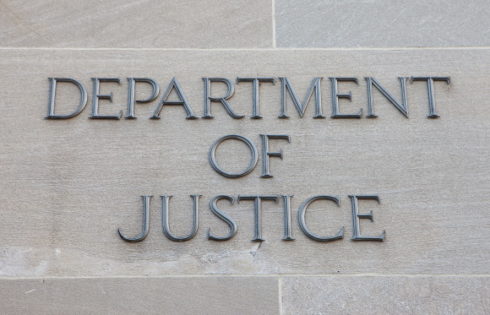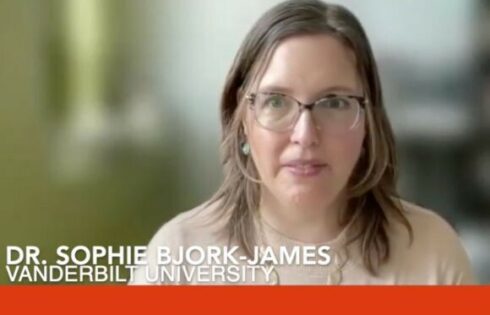
‘NO CONTACT’ provision not displayed prominently
If you’ve ever signed up for a service on the internet or downloaded an app, you’ve probably seen a check box asking you to confirm that you’ve read the terms of service.
These are documents written by and for lawyers, and any consumer without a law degree who claims to understand them is woefully naive. They are a great place to hide things like arbitration clauses that consumers might not agree to if they carefully read and understood the tiny-print, multi-scroll document.
Colleges have a similar version of terms of service: student conduct codes and other policies that govern the responsibilities and obligations of colleges and their students.
If you’re thinking of attending a college in Illinois, Indiana or Wisconsin – the jurisdiction of the 7th U.S. Circuit Court of Appeals – you might want to have a lawyer vet the college’s codes before you enroll there.
A federal judge in Illinois dismissed a student’s due-process lawsuit against the University of Illinois at Urbana-Champaign on Tuesday, saying he admitted he never read the student code on its website before enrolling.
“John Doe” claims that he was caught unawares when he received a “written charge notice via email” from a university investigator, January Boten, saying he had been accused of sexually assaulting a female student 10 days earlier.
The notice identified the sections of the student code Doe allegedly violated, which include its sexual misconduct policy and disciplinary procedures, and provided a link to the code. It also told Doe to have “NO CONTACT” with his accuser, “Jane Roe,” on penalty of additional charges.
As with many contracts that consumers don’t read carefully, this “NO CONTACT” provision was not obvious enough for Doe to immediately notice it. Judge Colin Bruce writes:
Upon receipt of the email, he reviewed the Student Code sections at issue and was aware that he was accused of sexual assault as defined in the Code. He then contacted Roe via text, stating “yo” and “what is this?” and sent a screenshot of the top of the [Office for Student Conduct Resolution] email. At his deposition, Plaintiff testified that he contacted Roe because he just read the top part of the email, skimmed the rest, and saw Roe’s name. After he sent the three initial texts, he carefully read through the email and then texted her saying “pretend you didn’t see this” and “just saw that I’m not supposed to have any contact with you.” He never contacted Roe after this.
Investigator Boten then hit Doe with a separate violation of the conduct code for contacting Roe after receiving the email. The three-person panel that judged the case included this violation along with its determination that Doe had sexually assaulted Roe because of texts claiming she was extremely drunk. He was suspended for two-and-a-half years.
If Doe had read and understood school policies on its website before enrolling – again, unlikely without a lawyer – he would have learned that the university has a different sexual-misconduct standard than the state of Illinois and it doesn’t do live hearings in Title IX cases.
"Close decision" on summary judgment instead hinges on acc'd student admitting in deposition that he hadn't read Illinois student handbook before enrolling, as he needed to do under relevant CA7 precedent. pic.twitter.com/3FaMwoTxex
— KC Johnson (@kcjohnson9) July 26, 2018
The panel takes a “simple majority vote” using the preponderance-of-evidence standard after reviewing the investigators’ final written report and interviewing the investigators. The accuser, accused and witnesses do not testify.
“Plaintiff is not claiming that the Panel did not follow the procedures” for adjudication in the code, Judge Bruce writes.
In his affidavit, Doe said he enrolled at the university “in reliance on the understanding that he would only be dismissed from the University for good cause.” In his deposition, he repeatedly said it was “normal understanding” that public universities give their students “normal rights as a citizen.”
Under 7th Circuit precedent, Judge Bruce said Doe doesn’t have a “liberty interest” claim against the university since he cannot show “he suffered an actual, tangible loss of other educational opportunities” because he was found responsible for sexual misconduct.
It’s not enough that Doe has stopped the application process for other universities when he realizes he has to disclose his disciplinary record, Bruce said.
Doe also needed to show that he has a “legally protected entitlement to his continuing education” at the university, in order for his “property interest” claim to survive. He cited parts of the student code that say students “have at least the rights” that all citizens enjoy and that being a student “does not diminish” their rights under Illinois or federal law.
While Bruce had earlier ruled that this language “could, possibly, be found” to implicate the constitutional right to due process, Doe’s subsequent deposition proved fatal to his case:
Does it matter that Plaintiff was not aware of the specific promises made by the University, that he claims he relied on, when he accepted its offer of admittance?
The court believes it does.
Under 7th Circuit precedent, Doe had to show the promises the university made to him, how they were “communicated,” and what he promised in return. Because he couldn’t show any promise communicated to him about “good cause” dismissal, he has no property interest, according to Bruce.
The judge expressed exasperation with the University of Illinois as well, writing in a lengthy footnote that this was a “close decision”:
Under a different set of facts, this case could have a different outcome. Illinois recognizes that the relationship between a student and an educational institution is, in some of its aspects, contractual. … Each side should know what they are promising and receiving in return. …
Does the University have an obligation to ensure students read the Code before accepting the University’s offer of admittance or enrolling? It would be a simple task for the University to provide a means for the incoming student to indicate they have read and understood the Student Code, such as a signed acknowledgment to be returned with the student’s acceptance of admission. By implementing such an easy procedure, situations like this one could be avoided in the future.
Bruce went on to express his “grave concern its grave and serious doubt over the constitutionality” of the taxpayer-funded university’s sexual-misconduct investigation and adjudication process.
Here he reminded the University of Illinois that it’s likely in violation of 7th Circuit precedent by denying accusing and accused students a “meaningful opportunity to be heard“:
An accusation of sexual assault is an extremely serious charge, which can carry legal, personal, and pecuniary consequences for the accused. The stigma which can come from such an accusation and the resulting finding of guilt, even if not from a criminal court, but rather an educational administrative body, is severe, serious, and can follow a person for years.
He said the university’s process “falsely emulates a criminal inquiry” but denies the accused the opportunity to confront witnesses or testify: “Telling one’s side of the story to an investigator, and having a chance to make corrections to that investigator’s report, is not a real opportunity to be heard”:
[A]t the very minimum, an accused party should be able to present his or her case to the person or people who actually decide their fate. … The court urges Defendant to adopt a more fair and thorough procedure for handling sexual assault claims in the future.
Judge sides w/@Illinois_Alma despite "grave concern and serious doubt over the constitutionality" of univ's TIX policy, which "falsely emulates a criminal inquiry, but lacks the ability of the accused to confront witnesses, be heard, or testify before the deciding panel." pic.twitter.com/FJPaV2C5bN
— KC Johnson (@kcjohnson9) July 26, 2018
If schools keep burying these problematic, likely unconstitutional provisions in contracts that students would otherwise never read, perhaps all the jobless lawyers emerging from law schools will finally have work.
Everyone will need a lawyer to vet their potential colleges before they apply.
Like The College Fix on Facebook / Follow us on Twitter






Please join the conversation about our stories on Facebook, Twitter, Instagram, Reddit, MeWe, Rumble, Gab, Minds and Gettr.